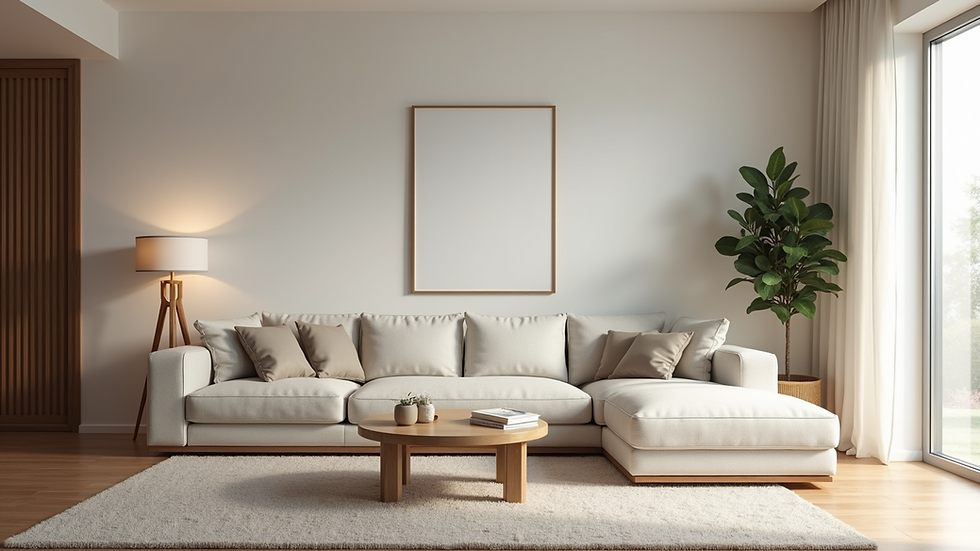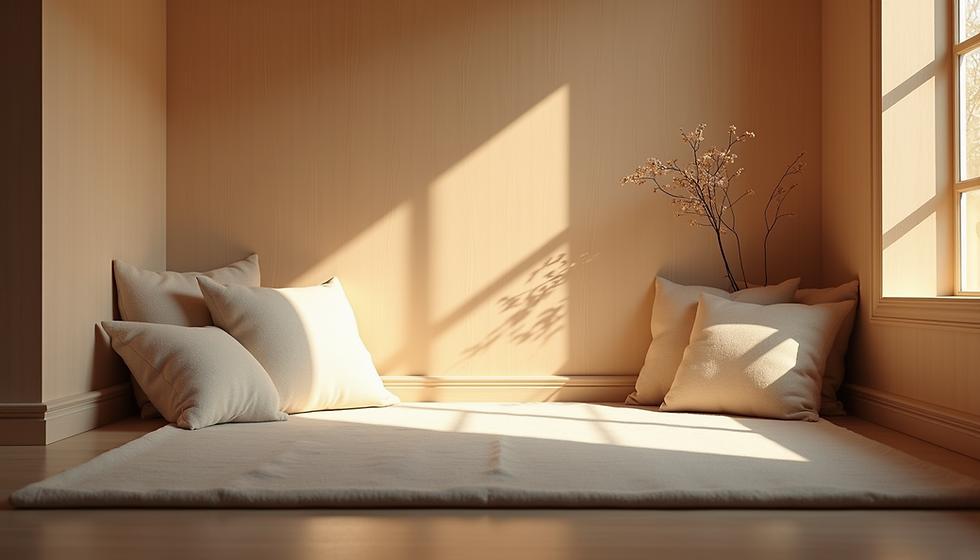Exploring the Link Between Minimalism and Mental Well-Being
- Natural Zen Team

- Jun 10
- 4 min read
In our fast-paced, cluttered world, many individuals are turning to minimalism as a powerful way to enhance their mental well-being. It's more than just a trend; it’s a lifestyle that promotes peace and clarity in our lives. As we navigate constant distractions from technology and consumerism, minimalism stands out as an effective strategy to regain control. This blog post explores the connection between minimalism and mental wellness, revealing how this approach can lead to a healthier, more balanced life.
Understanding Minimalism
Minimalism focuses on simplicity and intentionality. It’s about reducing the noise in our lives, allowing us to focus on what genuinely matters. This may mean getting rid of excess physical possessions, cutting out distractions, and even reevaluating toxic relationships. By doing this, we create a clearer mental space, which directly influences our mental health.
For example, research from the National Institutes of Health shows that people who maintain a clutter-free environment often report a 30% decrease in stress levels. Minimalism encourages individuals to invest in quality rather than quantity, ensuring that everything they hold onto has genuine value. This commitment not only reduces clutter but also cultivates a more serene mindset.
The Psychological Benefits of Decluttering
Decluttering plays a crucial role in boosting mental well-being. Studies indicate that 77% of people who declutter report feeling more focused and less anxious. Clutter competes for our attention and can lead to feelings of being overwhelmed.
When we clear out unnecessary items, we create an inviting environment that fosters a sense of control. For instance, after decluttering a workspace, an individual may find they can concentrate better and complete tasks more efficiently. Simplifying our surroundings not only enhances mood but also promotes a more focused mindset.

Mindfulness and Presence
Minimalism promotes mindfulness, which is the practice of being present in the moment. By simplifying our surroundings, we create the mental space necessary to engage deeply with our thoughts and feelings. Studies have shown that practicing mindfulness can lead to a 50% improvement in overall happiness and a significant drop in anxiety levels.
As people embrace a minimalist lifestyle, they often develop a deeper appreciation for their surroundings and relationships. This shift encourages a richer, more fulfilling life where individuals savor experiences instead of constantly pursuing more.
Reducing Decision Fatigue
Decision fatigue is a significant hurdle in our daily lives. With countless choices available, it’s easy to become mentally drained. Minimalism helps combat this by drastically reducing the number of choices we face daily.
For instance, a minimalist wardrobe can save time and mental energy by making it easier to decide what to wear. Research shows that people who simplify their routines save up to 15% of their decision-making energy for more important choices, leading to greater life satisfaction and clarity.
Financial Freedom and Reduced Stress
Minimalism often translates into mindful spending, which can markedly enhance mental well-being. Financial anxiety is a common stressor, with studies revealing that 72% of people experience stress related to money. Adopting a minimalist approach allows individuals to focus on living within their means, reducing unnecessary expenditures.
For example, those who prioritise experiences over material possessions often report higher levels of happiness. A survey indicated that participants who spent their money on experiences, such as travel or dining with friends, experienced a 40% greater sense of satisfaction than those who purchased items.
Cultivating Meaningful Relationships
Minimalism extends beyond material things and encourages us to evaluate our relationships. Prioritising genuine and supportive connections is essential for good mental health. Minimalists tend to emphasize quality over quantity, nurturing relationships that uplift and energise them.
By letting go of toxic relationships, individuals can create space for connections that truly matter. This, in turn, fosters a stronger sense of community and belonging—elements critical for enhancing mental well-being.
The Minimalism Journey
Embracing minimalism is a personal journey that requires reflection and practice. For many, it starts with decluttering a single room, while others may seek a complete lifestyle overhaul. Each individual’s approach will vary, and it’s crucial to practice self-compassion along the way.
A simple way to start is to reassess possessions and commitments. Ask yourself questions like, “Does this item bring me joy?” or “Is this commitment important for my well-being?” These reflections can help guide you toward choices that align with your values and support your mental health.
Final Thoughts
The connection between minimalism and mental well-being is clear and impactful. Simplifying our lives, nurturing meaningful relationships, and focusing on what truly matters help us achieve greater mental clarity and reduced stress.
In a world filled with distractions, minimalism offers a refreshing way to nurture our mental health. Whether through decluttering, mindful spending, or fostering genuine connections, minimalism has the potential to create significant positive changes. Each person's journey toward minimalism is unique, yet the insights gained can lead to a more fulfilling life. Ultimately, minimalism reminds us to cherish simplicity and prioritise our mental well-being amidst the complexities of modern life.







Comments